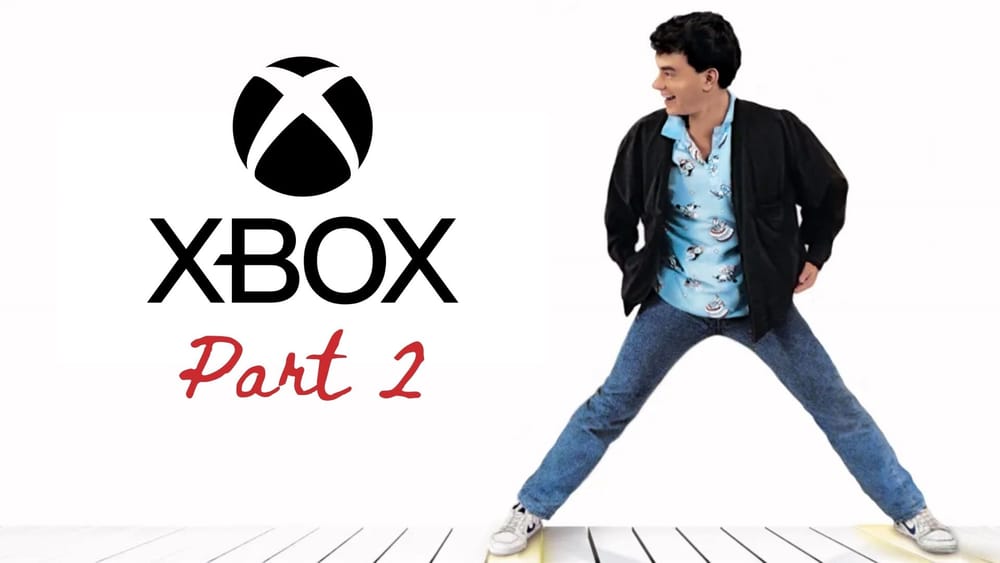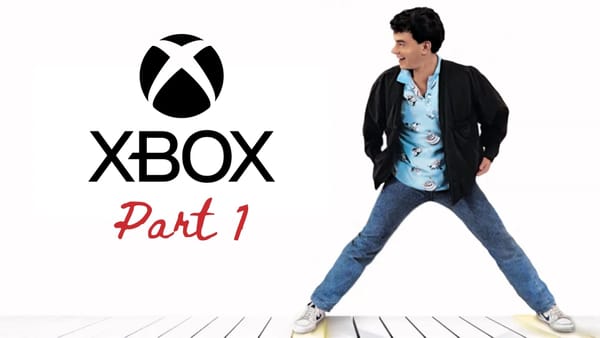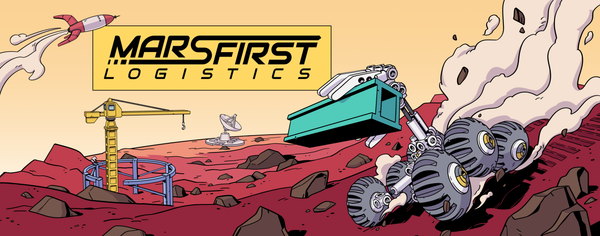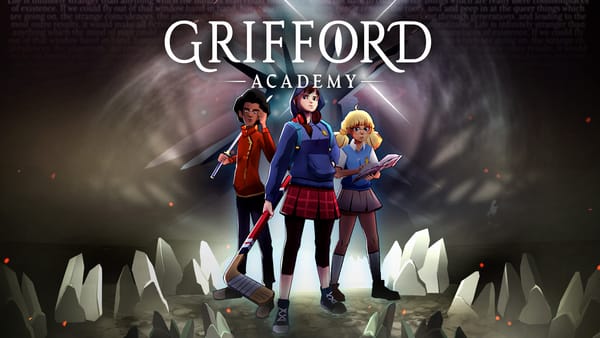If I ran Xbox, Part 2: Xbox Games Studios
Welcome back to Part 2 of Phil (Not that Phil) Saves Xbox! Today’s post is going to be all about the games Xbox is making and the studios making them. I’ll be upfront on this one: this post is the most completely over my skis I’ll be. The Microsoft Games Studios situation is complex, massive, and unwieldy, so this whole post is going to oversimplify everything. Just think of it as the difference between an NFL team coach and someone setting their lineup for the weekend’s fantasy team. Same game, very different levels of knowledge. So, let’s have some fun!
I think it’s probably fair to say that Microsoft does not have a good handle on whatever is going on with their studios. Between the massive layoffs, the $69B acquisition of Activision Blizzard King, almost constant cancellations of cool looking games, and a particular penchant for announcing stuff a decade too early—looking at you, Elder Scrolls 6—it’s probably fair to say they’re floundering. As part of my hardware reorientation (and the upcoming Part 3 on services), I’m repositioning Xbox to be a games company focused on selling services and the full Xbox experience on the go, not a top tier competitor to Playstation. The “console wars” were lost a while ago and, as the shareholders demand, it’s time to differentiate Xbox as something else. Nintendo is…Nintendo, Sony has evolved into the home of HBO-grade video games, and now Xbox needs to differentiate to be something else. When we talk about the huge stable of studios and talent, it’s clear to me what that something else should be: Apple TV. Run with me on this one.
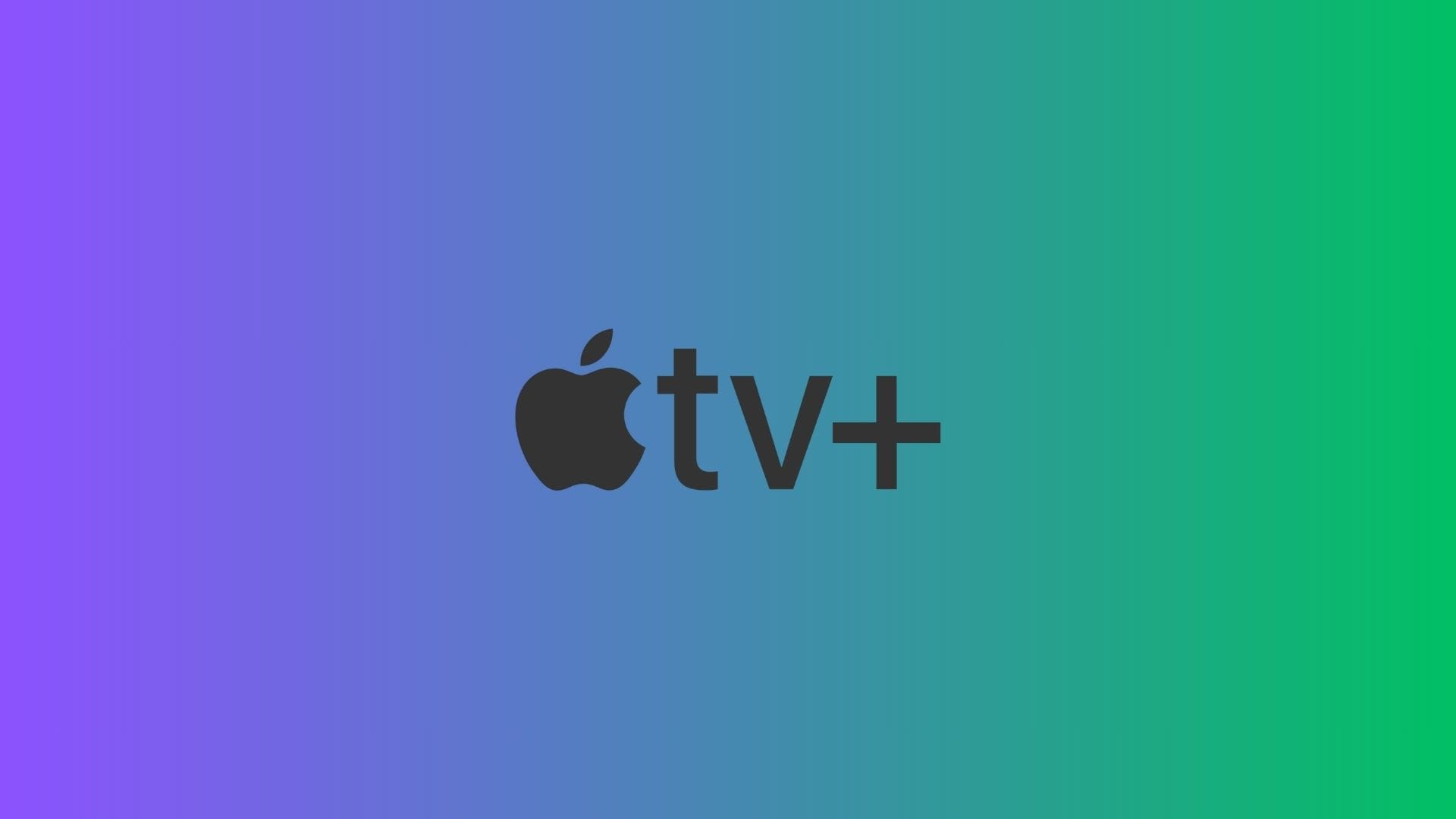
The Apple TV of Video Games
Is Apple TV the most profitable and popular video streaming service? Definitely not. But! They have a relatively small output compared to something like Netflix or Disney, but the stuff they put out is typically well-regarded or at least enjoyable. Some of the best shows are coming out on Apple TV (Severance, Ted Lasso, and my personal favorite: Foundation), but they’re coming out slowly. Budgets are big, but the shows tend to be constrained and smart. This is where Xbox can shine as well.
When we look at the landscape of gaming and the games available, there’s a couple pretty well-planted competitors. First, you have the Mom or Dad’s Phone. A subpar gaming experience, but ruled by convenience. The content is also typically subpar, kids are usually playing truly trash-tier games that are borderline fraudulent. The next tier is probably the hand-me-down Switch 1: relatively poor performance, but at least there’s a joystick. This is probably as far as most kids will get unless they have a gamer parent or a very deep interest in gaming. After that is the PlayStation and the Xbox, two consoles warring for the same consumer: high end gamers with budget to spend money on power and fidelity. If you read Part 1 yesterday, you’d know I’m repositioning the Xbox Hardware Division to focus more on two experiences: the Xbox Go portable and the Xbox Home dock. You’ll also see tomorrow, that I’m repositioning Game Pass to be a much simpler service that uses cloud gaming as a stop-gap, not an expected experience.
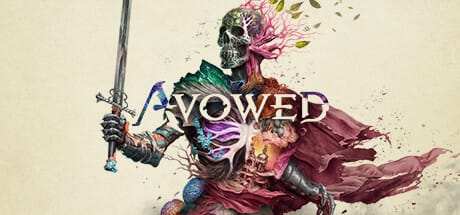
When I think of what the best strategy for Xbox Games Studios is, I look at a studio like Obsidian. I’ve got a very big video coming out soon about Avowed, but I really think that Obsidian has managed to figure it out. The very long history of Obsidian, includes KOTOR 2, Fallout: New Vegas, Pillars of Eternity (including Avowed), The Outer Worlds, Grounded, and Pentiment. While I love almost all the games Obsidian puts out, the thing I look at as the Head of Xbox Games Studios is their ability to expand and contract their project sizes. The Outer Worlds and Avowed share a similar size, but Pentiment is significantly smaller than Grounded. Obsidian is a pretty big studio, with around 285 employees at time of writing, but Pentiment was created with a tiny team, as was Grounded. Driven by creativity (and a need to test and publish rapidly), Obsidian has been able to publish some of the best games every two to three years since 2010. And I think a major part of that success is knowing their constraints.
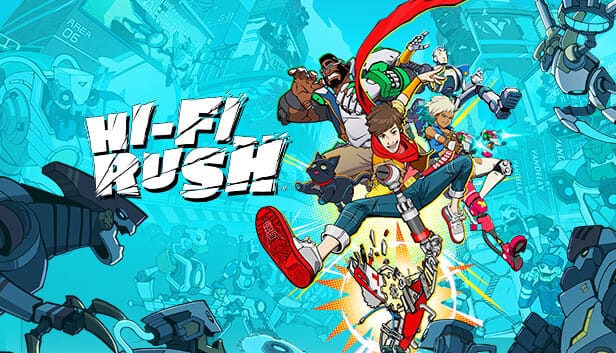
I’ll get into this more in Part 3, but the general vision for Xbox Games Studios is no longer to compete with Sony. Fidelity is no longer the goal to achieve, instead the guiding principle for studios is to follow something akin to Obsidian or Double Fine wherever possible: experimentation. Perhaps the best Xbox studio example of this is, unsurprisingly, Tango Gameworks. Known for their survival horror games, The Evil Within, Tango surprised almost everyone with their release of Hi-Fi Rush, a poppy and colorful rhythm platformer. Hi-Fi Rush, described as a way to give junior creators a chance to make exciting new games, achieved a 90 on Metacritic and was a GOTY-contender. The next year, after saying the game was a success, Microsoft shuttered Tango Gameworks. Instead of seeing Hi-Fi Rush as a new way to run Game Pass and keep up a quick cadence of Xbox releases, Microsoft closed the door on the future that I’m fully re-opening.
As Head of Xbox Games Studio, I’m enshrining that Sonic meme as the direction of the day: “I want shorter games with worse graphics made by people who are paid more to work less and I’m not kidding.” That’s right, I’m head of Xbox, y’all get raises too.
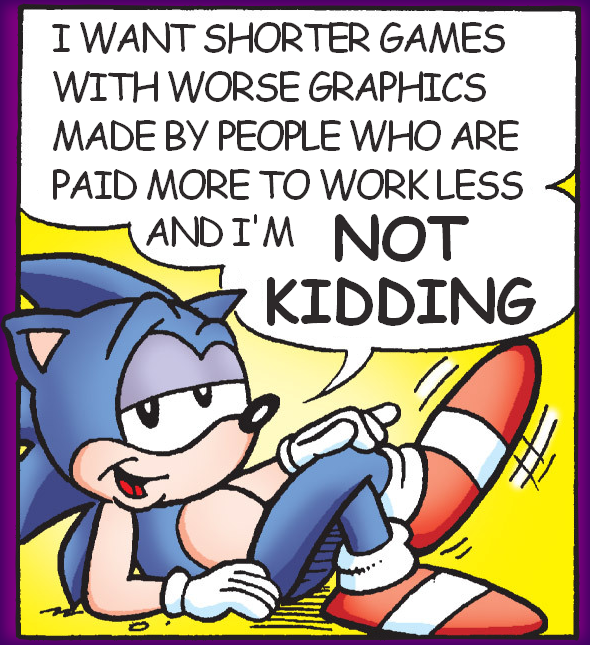
Okay, here’s the thing. That meme gets bandied about plenty and it’s gotten to the point where it’s really annoying. What I mean is that the games Xbox Games Studios make should fit the strategy. Because of Game Pass, Xbox doesn’t need to have a forever game as bad as Sony does. They just need a forever service: an online subscription service that slowly trickles the coolest things you’ve never seen directly onto your home screen…just like Apple TV. Xbox needs to ship more games like Pentiment, Hi-Fi Rush, and Keeper to fill the gaps between tentpole games…and you do that by letting more people make games that aren’t held to the Sony AAAA HBO standard. And you really do need to pay these people more. Truly under-stated how much this matters.
Another aspect that was always alluded to with Sony’s purchase of Bungie, but who knows how much it came to fruition is the notion of shared knowledge and teams. Some of the best companies I’ve worked at not only have great culture and exciting projects, but they’ve incentivized you to move around the company if your current thing is getting stale. Maybe you’re not going to stick on the Mario team for your entire career, but doing narrative design for an ID game, then moving over to a Rare game could be a fun way to cross-pollinate some cool ideas from a massive stable of studios. Creative endeavors are most successful when the spaces they’re made in and the people making them are fresh, encouraging, and diverse. When you have a diverse stable of studios making a diverse group of games, I can see real potential in moving people around to skill-up and keep people excited (and making new, experimental stuff you’ve never seen).
Hi-Fi Rush, Pentiment, Grounded, Keeper, hell even Fallout Shelter, are great examples of “small” games that give a ton of players a taste of something different. Xbox Games Studios has a breadth of studios that no one else can compete with, but it often feels like these studios are head’s down on one or two projects for years at a time to make the most polished thing that will not, nor could not, ever compete with the Last of Us Part 2 Collector’s Edition Now in Chronological Order featuring Nick Offerman from the Hit HBO Television Series The Last of Us. Xbox Live Arcade was replaced by Game Pass; it’s time to live up to those roots.
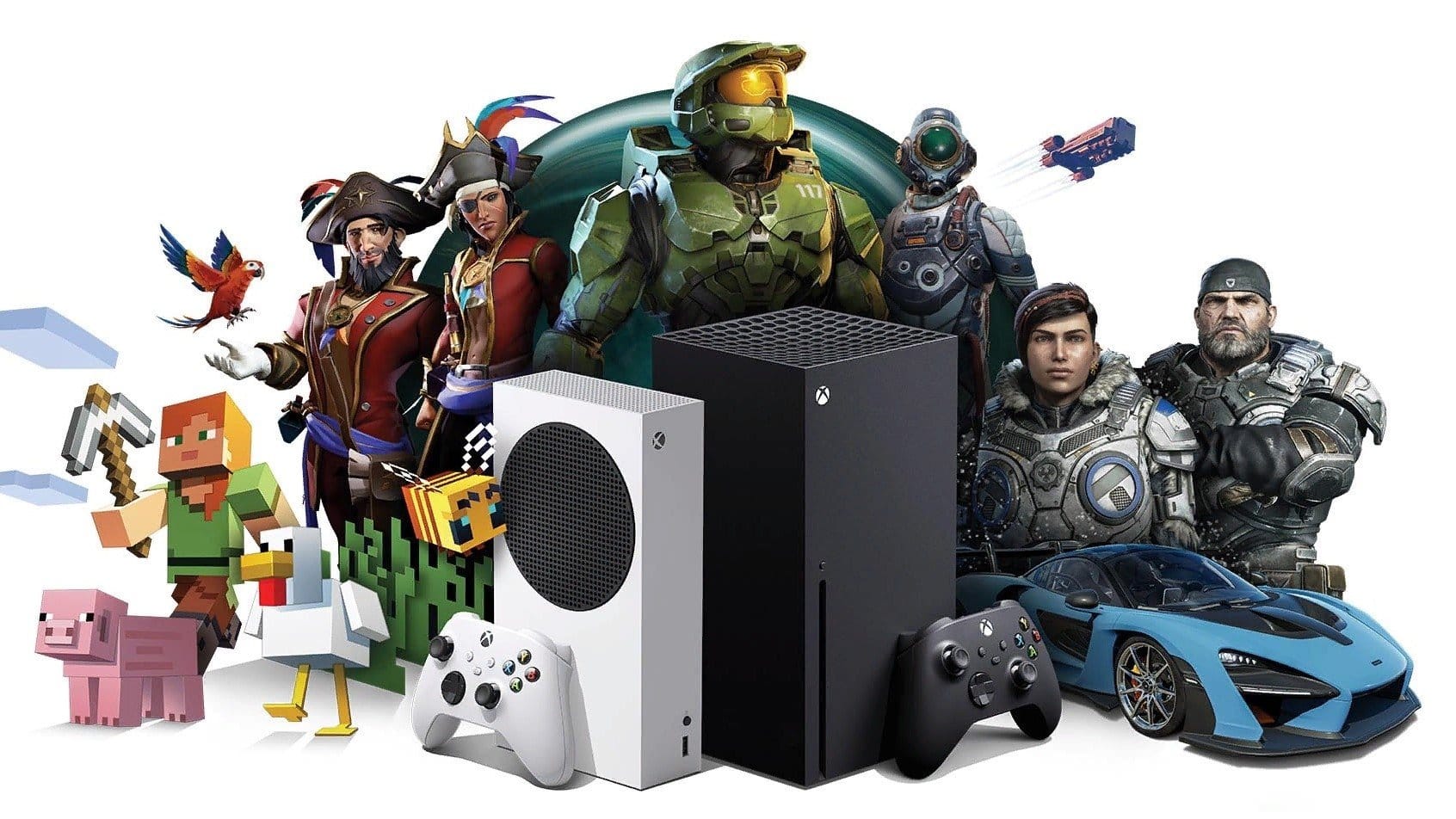
The intellectual property of it all
You know what else Xbox has a shitload of that they’re not using to their full potential? Intellectual Property. Have you ever sat down and asked yourself, why isn’t there a top-down isometric tactics game in the Wolfenstein universe? What about a first-person Diablo RPG? Xbox Cart? A Pillars of Eternity RTS? Or how about a Halo immersive sim? Sure, a big reason is because these studios deserve to nurture their own IP, but I’ll come back to Fallout Shelter: when you are working on a massive project like Starfield, it sure helps to have something else you’re working on. You know what else could help? An established IP that has a fully developed world. “All” you have to do is find the novel gameplay mechanics to do something different.
This is a much larger soapbox of mine about the entire industry, but it’s baffling to me that Xbox has this massive stable of IP that continues to be locked down by the core studios that developed them. Some of the biggest names in gaming are trapped in the development cycles of teams deep in iteration land. My standout example of this is the recently announced (and canceled) Perfect Dark reboot co-developed by The Initiative and Crystal Dynamics. Rare has too much going on with Sea of Thieves and other (also canceled) projects, so let someone else have a good idea with your cool character! It’s a cheat code to getting projects greenlit and a good way to sucker in players to try out something made by the team, but not the “visionary” (looking at you, Elden Ring: Nightreign). Hand out IP for free to small teams in-house, or do a Perfect Dark and license out the IP to smart teams doing smart things.
What even is success, man?
None of this comes together though, without a reinvention of what success looks like. And it’s not a 30% margin on everything. Again, taking a note from Apple TV, but the purpose of Apple TV is not to sell iPhones, nor is it to get you to buy a subscription to Final Cut Pro. Apple TV exists to generate recurring revenue and put a little prestige shine on a bead-blasted aluminum company. Severance is not filmed exclusively on iPhone, nor is running that show showing off the power of the M5 Pro Ultra chipset. The same should be for Xbox Games Studios.
The purpose, above all else, is to make good games that put a shine on the Xbox consoles. The studios should be encouraged to experiment, not stick with the tried-and-trues because, as we’re seeing with Sony, the appetite for the same game in seven different settings has an upper limit. Pentiment won’t sell ten million copies, but it can be part of a more holistic strategy to sell ten million, twenty million, thirty million Game Pass subscriptions.
Sure, you’ll always have an Elder Scrolls 6 or a Forza Motorsport, but the goal is to have these big “it’s better than ever!” moments less and “you’ve never seen something like this before” moments more. Xbox Games Studios make games, it should be fun. And for gods sake, don’t announce something ten years ahead of time. The PR hit Bethesda has taken for posting a “6” after Elder Scrolls may never actually be overcome.
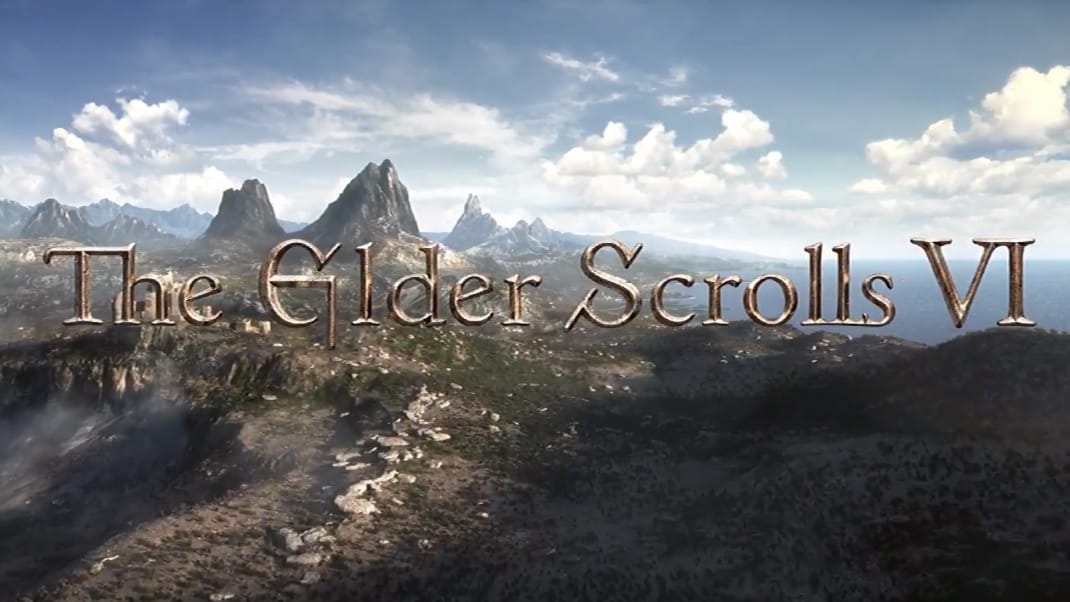
Again, we’ll talk about this tomorrow with the Game Pass discussion, but the real success of my Xbox Game Studios will always come down to attach rate: keeping the pipeline from iPhone Roblox to Xbox Game Pass is all I want. If this industry is ever going to thrive, there needs to be more players. More players need more, different experiences that are deep and interesting. Maybe you can’t pull that many from Roblox or Fortnite, but with a bevy of games doing exciting new things, all you need is one to get someone in the ecosystem.
Ultimately, the games part of Xbox has always been my favorite and somehow the most flawed. There are so many (fewer now, but still) incredible people making the coolest things I’ve ever seen there. The mechanics are incredible, the stories are so good, and the raw creativity on display is unbelievable. I just wish that Xbox would get its shit together and let those people do all of that in a kinder, calmer way that prioritized good ideas and experimentation over beating a dead horse.
Speaking of which, pay your developers more.


